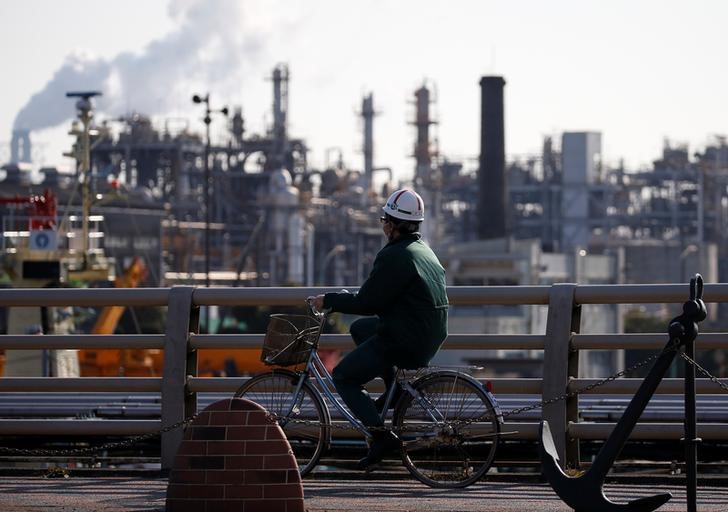Investing.com’s stocks of the week
By Stanley White
TOKYO (Reuters) - Japan's industrial output rose less than expected in October, but companies forecast production to rise strongly in November and December as robust overseas demand continues to support factory activity and broader economic growth.
The 0.5 percent increase in October was less than the median market projection for a 1.9 percent increase and followed a revised 1.0 percent decline in September.
Though October's performance was slightly disappointing, forecasts for an acceleration in factory output suggest Japan could extend its longest uninterrupted period of growth in more than a decade as exports and domestic demand drive the economy.
Manufacturers surveyed by the Ministry of Economy, Trade and Industry expect output to rise 2.8 percent in November and 3.5 percent in December.
"I expect the economy to continue expanding," said Shuji Tonouchi, senior market economist at Mitsubishi UFJ Morgan Stanley (NYSE:MS) Securities.
"Industrial production forecasts suggest we will see some good numbers in October-December, but we need to confirm that companies actually ramp up production as much as they expect to," Tonouchi said.
Industrial output rose in October due to increased production of semiconductors, car parts, and machines used to make flat panel displays, trade ministry data showed on Thursday.
A breakdown of forecasts for December shows that makers of construction equipment and heavy machinery needed to manufacture other goods expect their output to rise to a record high in December, a trade ministry official told reporters at a briefing.
This reflects strong global demand for capital goods and increased capital expenditure overseas, the official said.
The industrial output data is yet another reason for optimism about the economic outlook.
Many economists expect consumer spending to rebound in the second half of this year due to a tight labor market.
Capital expenditure is also likely to continue expanding as companies invest in new equipment to deal with labor shortages and capacity constraints, economists say.
Japan's economy grew faster than expected in the third quarter thanks to strong exports, posting the longest period of uninterrupted growth in more than a decade, data showed earlier this month.
The Bank of Japan is likely to point to the country's steady economic growth as an indication that price pressures will eventually build up and inflation reach the central bank's 2 percent target.
